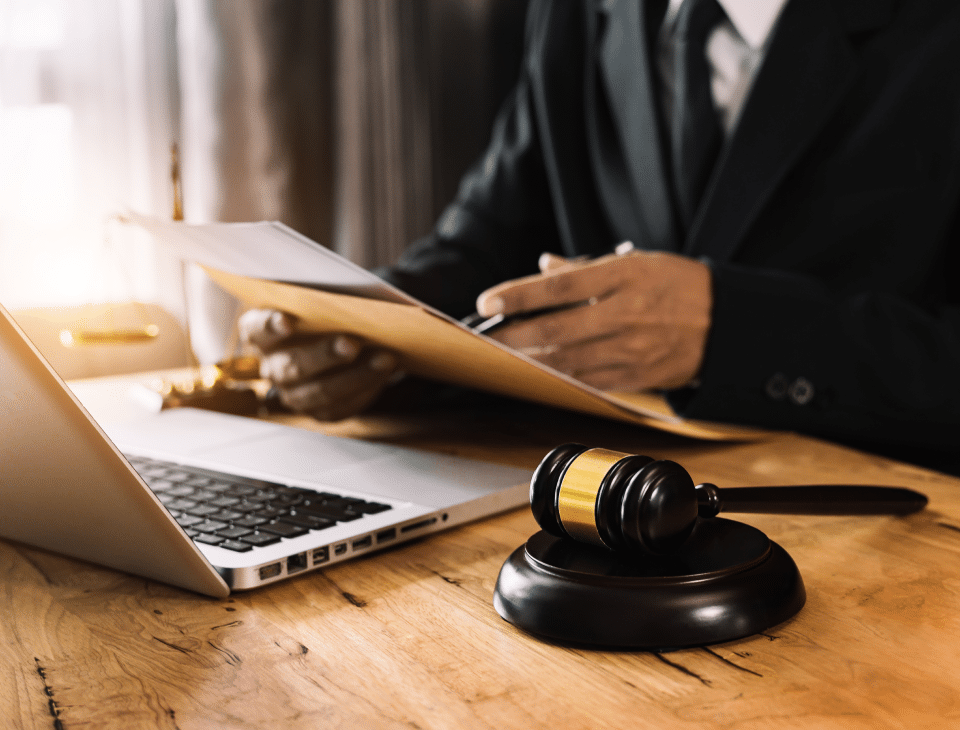Criminal Defense Strategies in Texas: Your Guide to a Strong Defense
Welcome to Castro Criminal Lawyer. In this guide, Christopher Castro will walk you through a general overview explaining how a criminal defense attorney defends clients against criminal charges.
If you are facing a DWI or domestic violence charges, you need to consult a criminal defense attorney. These types of attorneys have the skills you need to flight back and avoid a conviction.
So how do they help you fight back, avoid a conviction and keep the charges off your record? They use criminal defense strategies, which will be explained below.
Keep in mind that every attorneys strategy is unique, and based on their experience, know-how and skill.
Legal Process Timeline After An Arrest
When you are facing a criminal charge, you will take the following steps throughout the life of your case. If you have an attorney, they will advise and guide you throughout the process.
- Arrest: Learn what to expect immediately after an arrest.
- Arraignment: Get to know the charges against you and understand the plea process.
- Pre-Trial: Engage in motions, discovery, and potential plea negotiations.
- Trial: (if pre-trial fails) the next step is trial, which entails jury selection, evidence presentation, and the overall courtroom process.
- Sentencing: Understand the potential outcomes and penalties if convicted.
- Appeals: Explore your options if the verdict is unfavorable.
What Is A Criminal Defense Strategy?
A criminal defense strategy is when an attorney examines evidence, the police report, and witness statements, including other records to help him understand the charges against you.
In Texas a criminal defense strategy will be based on the Texas penal code (state of Texas or Federal law. You can find more information on the penal code at the Texas State website
Ultimately, the end result will range between:
- Pleading guilty
- Pleading not guilty
- Aquittal
- No contest plea
- Accept a plea bargain
Creating a Criminal Defense Strategy
- Initial Case Evaluation: A criminal defense lawyer will start by gathering every detail relevant to your case. They will review police reports, witness statements, and all available evidence to identify weaknesses in the prosecution’s argument. This thorough evaluation is critical for spotting procedural errors or inconsistencies that could be challenged in court.
- Tailored Defense Plan: Based on an initial evaluation of your case, your attorney will develop a customized defense strategy. For example, they might challenge the legality of a stop and search,they might question the reliability of witness testimony, or offer alternative explanations for the evidence in question. The goal is to create a compelling narrative and argument that undermines the prosecution’s case.
- Attorney-Client Privilege: Confidentiality is paramount. Attorney-client privilege will ensure you can share every detail of your situation without fear that your words will be used against you.This is a key part of building the strongest possible defense.
Common Criminal Defense Strategies
Experience and skill will be the deciding factor in how well your attorney can implement a strategy on your behalf.
Your attorney will assess whether law enforcement had probable cause for your arrest, determine if the prosecution’s evidence is sufficient to prove guilt, and identify any additional factors that could help you avoid a conviction.
- Alibi Evidence: Presenting proof that you were elsewhere when the crime occurred.
- Challenging Probable Cause: Arguing that there was insufficient reason for your arrest.
- Questioning Evidence Collection: Highlighting errors in the manner in which evidence was gathered, including unlawful searches or seizures.
- Witness Credibility: Undermining the reliability of prosecution witnesses by exposing inconsistencies in their testimonies.
- Expert Testimony: Using experts to dispute forensic evidence or provide alternative interpretations.
- Self-Defense Claims: Arguing that your actions were justified in protecting yourself.
- Mistaken Identity: Demonstrating that you were misidentified as the perpetrator.
- Lack of Intent: Proving that you did not have the necessary intent to commit the crime.
- Constitutional Violations: Pointing out any breaches of your constitutional rights during the arrest or investigation.
Pre-Trial Defense Tactics
Before a case reaches trial, several steps and proactive measures are taken to improve the odds of a case win.
The most important factor here is going to be the facts of your case, but also the skill and know-how of the attorney defending your case. It is vital to choose an attorney carefully, because an unskilled attorney might miss crucial information or have poor negotiating skills, which can change the outcome of your case to less favorable, than if you had a skilled attorney doing the same.
- Investigation and Evidence Collection: Your lawyer might hire private investigators and forensic experts to gather evidence. This includes gathering witness statements, reviewing surveillance footage, and scrutinizing the methods used by law enforcement.
- Motions and Legal Challenges: Pre-trial motions, which can suppress evidence or dismiss charges due to constitutional violations. This can significantly weaken the prosecution’s case before it reaches the courtroom.
- Negotiations with Prosecutors: Often, the charges can be reduced or resolved through plea negotiations. Your attorney will work with the prosecutor to obtain a more favorable deal based on the strengths and weaknesses of your case.
Trial Defense Strategies and Courtroom Tactics
If your attorney is unable to negotiate a better deal, or they feel the case has better chances at trial, your defense strategy will shift to the courtroom, where every detail will count.
- Jury Selection :A critical aspect of trial preparation is selecting an impartial jury. During voir dire, your attorney will identify and eliminate potential biases, ensuring the jury remains fair and open-minded throughout the proceedings.
- Effective Cross-Examination: In court, your attorney will aggressively cross-examines prosecution witnesses, challenging their credibility and exposing inconsistencies in their testimonies. This process helps raise reasonable doubt about the strength of the evidence against you.
- Presenting a Persuasive Narrative: Your attorney will present a clear and compelling narrative that offers a favorable interpretation of the facts. They can use expert testimony, demonstrative evidence, and persuasive arguments. Their goal is to show reasonable doubt, and the prosecutor has a flawed case.
Post-Trial Remedies and Follow-Up
If a conviction is reached, there are still options available, and avenues to pursue a better outcome.
- Appeals: If procedural errors or legal mistakes occurred during the trial, your attorney can file for an appeal. An appellate court can review the trial’s proceedings and, if warranted, overturn a conviction.
- Sentencing Mitigation: When a conviction is unavoidable, your attorney will advocate for reduced sentencing. They can present factors such as your background, good character, and efforts at rehabilitation to lessen the long-term impact of the conviction.
Consequences Of A Criminal Conviction
If your attorney is unable to avoid a conviction, you will face any of the following consequence:
- Jail or Prison Time: This is reserved mostly for felonies, but sometimes misdemeanors.
- Probation and Community Service: Instead of jail, we may obtain alternative sentencing for a client, but it will have significant restrictions.
- Fines and Restitution: Financial penalties range from thousands to 10s of thousands depending on your case.
- Long-Term Effects: A conviction will put the crime on your criminal record, which will impact future employment, personal relationships, and even your civil rights (like the right to vote or possess a firearm).
Why Choose Criminal Defense Attorney Christopher Castro
At Castro Criminal Lawyer, I’m committed to developing a defense strategy that’s tailored to your unique situation. Here’s how we stand by your side:
- Personalized Legal Representation: Every case is different. I work closely with you to understand the nuances of your situation and craft a defense that addresses your specific needs.
- Strategic Defense Planning: From gathering and analyzing evidence to challenging inconsistencies in the prosecution’s case, every step is carefully planned.
- Experience and Expertise: With a proven track record of success, I know how to navigate complex legal challenges and build strong defense cases.




